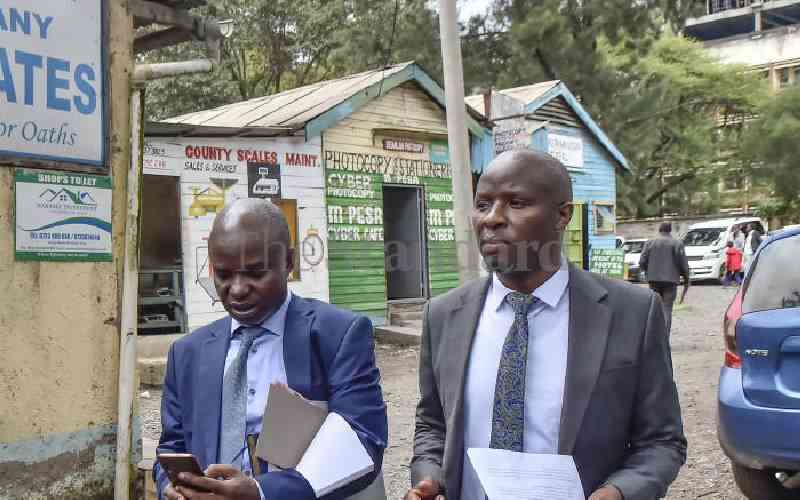Kenya: Matatu operators have urged the Government to convene a meeting between the Kenya Revenue Authority (KRA), the National Transport Safety Authority (NTSA) and Matatu Owners Association to discuss how the new traffic rules can be implemented without hurting the industry.
The operators, through their umbrella body, Matatu Welfare Association (MWA), want implementation of the new traffic rules and regulations reviewed, saying they were incurring huge losses.
They said they lose approximately Sh9 billion annually due to poor implementation of the regulations and unfair taxation.
"We are not opposed to the regulations but let us explore implementation modalities that do not discriminate, target and hurt operators who want to earn an honest living," MWA chairman Dickson Mbugua told The Standard in an interview.
"The rush with which the authority applied the digital speed governor regulation and the attendant discrepancies in supply and costing for the gadgets set the industry back some Sh2.4 billion in losses per month," he added.
He further claimed that the new cashless fare system would cost the industry at least Sh6.75 billion annually in taxes, adding that this would bring them to their knees.
KRA is working on a framework to facilitate taxation of all passenger service vehicles, including matatus and minibuses that carry up to 24 people.
Once the cashless system is operational, commuters will pay fares using pre-paid cards at point-of-sale terminals installed in compliant buses and matatus.
Through this system, the taxman hopes to generate an additional Sh20 billion annually from an industry believed to churn Sh400 million daily and up to Sh20 billion annually.
But the association maintains the new regulation amounts to double taxation as the operators are already saddled with many levies including road licenses and the Transport Licensing Board famously known as TLB, which cost the industry an estimated Sh1.2 billion monthly.
"What we are looking at is a double taxation system that will not only hurt the consumer but also hurt an industry that is an integral part of the economy," Mbugua said.
Mbugua said three per cent tax levy proposed by KRA on the cashless fares is too prohibitive, adding that it would leave the industry saddled with a Sh6.8 billion tax bill at the end of every year.
"This is notwithstanding the fact that the industry already pays taxes amounting to no less than Sh2.4 billion annually," he said.
Nakuru Central Matatu Sacco chairman Steven Muli said the process of fixing the new digital equipment is time-consuming and expensive.
Stay informed. Subscribe to our newsletter
 The Standard Group Plc is a
multi-media organization with investments in media platforms spanning newspaper
print operations, television, radio broadcasting, digital and online services. The
Standard Group is recognized as a leading multi-media house in Kenya with a key
influence in matters of national and international interest.
The Standard Group Plc is a
multi-media organization with investments in media platforms spanning newspaper
print operations, television, radio broadcasting, digital and online services. The
Standard Group is recognized as a leading multi-media house in Kenya with a key
influence in matters of national and international interest.
 The Standard Group Plc is a
multi-media organization with investments in media platforms spanning newspaper
print operations, television, radio broadcasting, digital and online services. The
Standard Group is recognized as a leading multi-media house in Kenya with a key
influence in matters of national and international interest.
The Standard Group Plc is a
multi-media organization with investments in media platforms spanning newspaper
print operations, television, radio broadcasting, digital and online services. The
Standard Group is recognized as a leading multi-media house in Kenya with a key
influence in matters of national and international interest.




